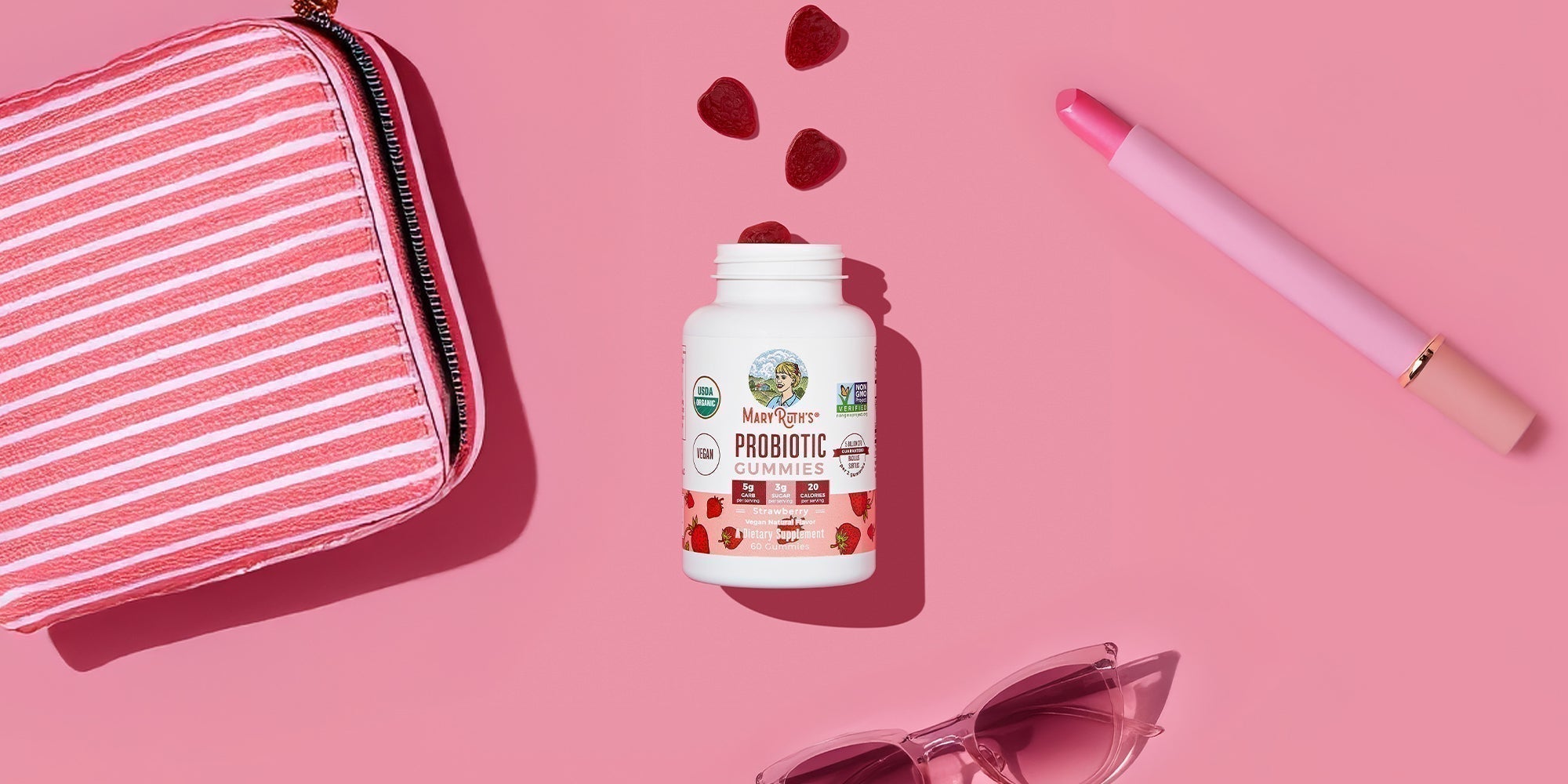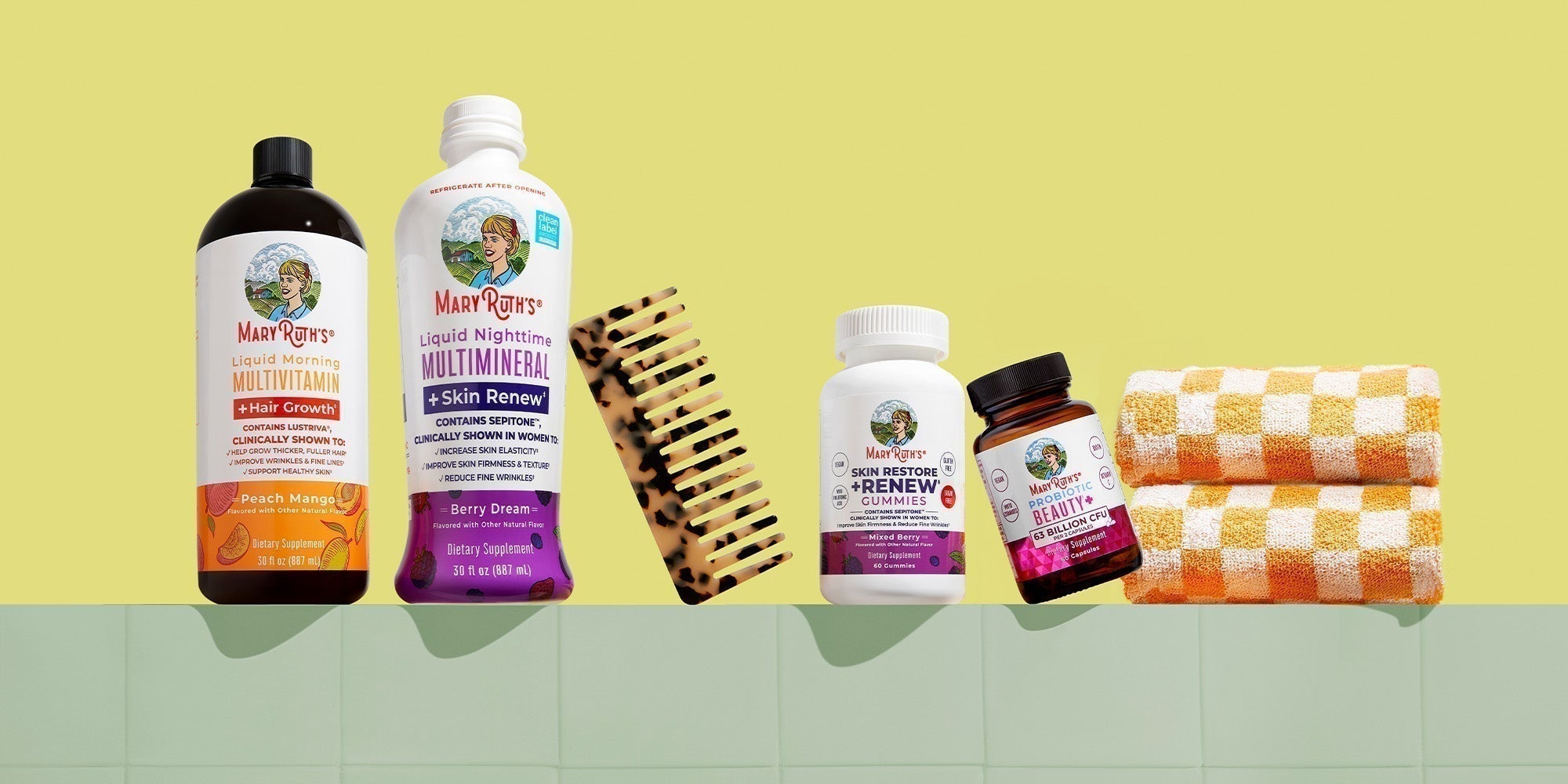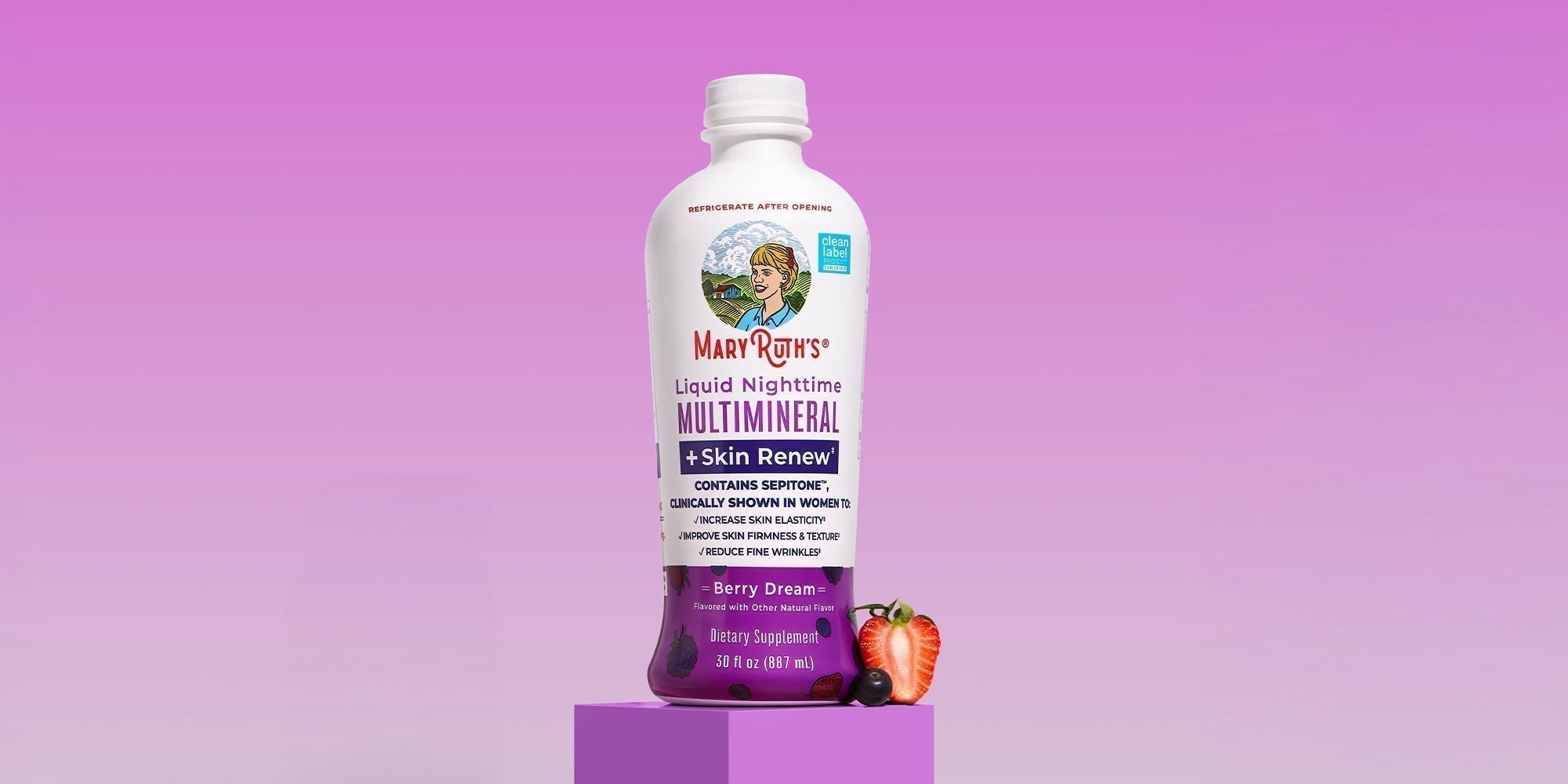What is Biotin?
Biotin is one of the B-complex vitamins, a group of water-soluble vitamins that all serve different purposes within your body. Also referred to as vitamin H, limited research suggests that biotin is essential for healthy hair, skin, and nails and may support the healthy development of a baby in its mother's womb.
Along with other B vitamins, biotin can be found in food sources or taken as a supplement. Biotin is found in both plant and animal foods, and anyone eating a healthy plant-based diet full of whole foods should have no problem getting enough of this important nutrient from dietary sources.
Biotin is a water-soluble vitamin. This means that your body doesn’t store it the same way it would a fat-soluble vitamin.
Once absorbed, fat-soluble vitamins are easily stored in the body’s fat tissue; water-soluble vitamins however, are not stored in fat, but tend to be washed out of the body relatively quickly. Other water-soluble vitamins include the rest of the B-complex vitamins and vitamin C. The solubility of a vitamin can be important for determining the best way to take the vitamin, and for understanding how it works in the body.
What Happens If I Don't Get Enough Biotin?
Biotin deficiencies are uncommon among the general population. However, some groups of people, including pregnant women, may be at higher risk of a biotin deficiency.
Below are some of the primary signs that may indicate a biotin deficiency. While other factors may cause these symptoms, insufficient amounts of vitamin H may also play a role.
If you suspect that you have a biotin deficiency, make sure to talk to your doctor and get professional guidance about how to approach treatment and get your levels of the nutrient back on track.
-
Thinning hair; Alopecia. As the symptoms of biotin deficiency may appear gradually, hair may thin before progressing to loss. Alopecia is the partial or complete lack of hair somewhere it normally grows on the body. This has been noted as a clinical finding in some individuals with biotin deficiency. It’s important to remember that as biotin deficiency is uncommon, any hair thinning or loss that you experience could likely be caused by something else.
-
Brittle nails. Insufficient biotin levels may also lead to brittle nails. While more research needs to be completed in order to fully support biotin’s ability to support nail health, a few studies have supported biotin’s ability to promote thicker or firmer, harder nails in a number of women who supplemented their biotin over a number of months. Unfortunately, we do not know the original biotin status of the women before completing the study, so it’s not possible to determine how much biotin the women were consuming prior to these studies.
- Skin problems. Skin problems caused by biotin deficiency are said to be due to impaired fatty acid metabolism. Difficulties may occur including infections of the skin and the conjunctiva (the membrane that lines the eyelids).
Product Recommendation
What Foods Contain Biotin?
A wide array of fruits, vegetables, and other whole, plant-based foods contain biotin. Apples, bananas, oats, whole wheat bread, sweet potatoes, sunflower seeds, almonds, broccoli, spinach, and more are all part of a healthy diet that can contribute to your daily biotin.
Biotin is also abundant in plenty of animal products. Eggs, organ meats, pork, and fish, are all suggested foods for your biotin intake if you eat animal products. Importantly though, while multiple animal-derived foods provide biotin, they're far from the only reliable sources of this and multiple other vitamins.
A plant-based diet, complemented by well-chosen supplements, can still supply you with all the vitamins and minerals that you need, including plenty of biotin!
How Do I Take Biotin As A Supplement?
Biotin can be taken on its own in multiple forms, including gummies, liquids, and capsules. In addition, you can find biotin included in a multivitamin.
In addition to biotin, MaryRuth's liquid multivitamins offer you a variety of other essential nutrients, including vitamin B12 and vitamin D. These two nutrients are often lacking in a vegan diet, so it's important for vegans to ensure they’re getting adequate intake in one form or another.
Product Recommendation
What is Collagen?
When it comes to understanding the structure of your body, collagen is an important protein. Not only is it the most abundant protein in the human body, it’s the most abundant protein in the animal kingdom! Collagen is also the primary component of connective tissue.
The Different Types of Collagen
The human body contains at least 16 types of collagen, but most of our collagen is made up of types I, II, & III. These helical proteins provide support to bones, skin, tendons, cartilage, muscle, blood vessels and more.
-
Type 1 Collagen is found in your skin, teeth, nails, and your bones. This type of collagen is the most abundant form of the protein in your body.
-
Type 2 Collagen along with another protein called aggrecan make up about 80% (by dry weight) of the cartilage matrix.
-
Type 3 Collagen is found in some of the same areas as Type I collagen. Some examples include the skin, lungs, spleen, and blood vessels. However, Type III is not found in bone.
-
Type 4 Collagen is the collagen found in basement membranes — which are present in every tissue of the body. Some examples of where you can find Type IV collagen are the kidneys and lungs.
The only dietary sources of collagen are animal products (although there are potentially some “vegan collagen” supplements available via genetically modified yeast and/or bacteria.)
As an animal protein, naturally derived collagen is impossible to get from dietary sources for anyone eating a completely plant-based diet.
However, since the human body produces its own collagen, those choosing to eat a plant-based diet, or those who don’t want to supplement with collagen in their diet, can choose to supplement with vitamins and other substances that boost their own collagen production.
What Foods Contain Collagen?
Unfortunately, there are no naturally-occurring vegan sources of collagen. The protein is only found in animal foods, but vegans can still support collagen production by getting enough vitamins and minerals from plant-based foods. A healthy diet that is rich in nutrients helps to promote your body's natural production of collagen.
Please note that there does seem to be a vegan collagen option that’s in the making, or perhaps already available, using genetically modified yeast and/or bacteria. We’ll discuss this in the next section.
Can Vegans Take Collagen Supplements?
Collagen from food sources is almost always animal-based in one way or another — beef, pork, fish, chicken, bone broth, egg whites, etc. Anyone who does not adhere to a plant-based diet consumes collagen through the animal products they eat. It’s important to note that collagen supplements that contain naturally derived collagen are ALL from animal sources.
There are no natural plant-based sources of collagen, which can make it difficult (or impossible) for anyone adhering to a plant-based diet to supplement their collagen. However, the latest news in “vegan collagen” is a process to create vegan collagen from genetically modified yeast and/or bacteria.
How Can You Support Collagen Production Without Animal Products?
Do you maintain a plant-based diet? Wondering how you can promote collagen production? We may have just what you're looking for.
MaryRuth's Vegan Collagen Boosting Gummies or Vegan Collagen Booster Liposomal are both great options to add to your plant-based diet. The delicious watermelon-flavored gummies and the maple hot cocoa flavored liquid liposomal provide your body with nutrients it needs to produce collagen on its own
Product Recommendation
The Key Differences Between Biotin And Collagen
To wrap up, let's discuss the key differences between biotin and collagen. As you've now learned, both collagen and biotin are important, and your body needs both. But how are these two substances different, and what do their differences mean for someone pursuing a healthy diet and lifestyle?
-
Collagen is a type of protein, and biotin is a vitamin. Your body naturally produces collagen to support its various structures, including your bones, teeth, nails, skin, and more. And, while biotin is produced in the body by some gut bacteria, the primary means of biotin supply is from dietary sources as the body itself does not produce this vitamin.
-
You don't need to eat collagen to maintain your body's production of the protein, but you do need to get biotin from dietary sources. Collagen is only found in animal foods, which are off-limits for those who live a vegan lifestyle. Fortunately, you can still stick to a plant-based diet and boost collagen production by getting enough of the nutrients your body needs to produce its own collagen. In contrast, biotin is a nutrient that you'll need to get from foods and supplements.
-
Biotin can be found in vegan foods, but collagen cannot. As an animal protein, collagen is only found in edible form in animal products. Biotin, unlike collagen, is found in both plant and animal foods.
To start adding important nutrients to your supplement regimen and support your levels of biotin or to help your body produce its own collagen, shop our Beauty Collection!













